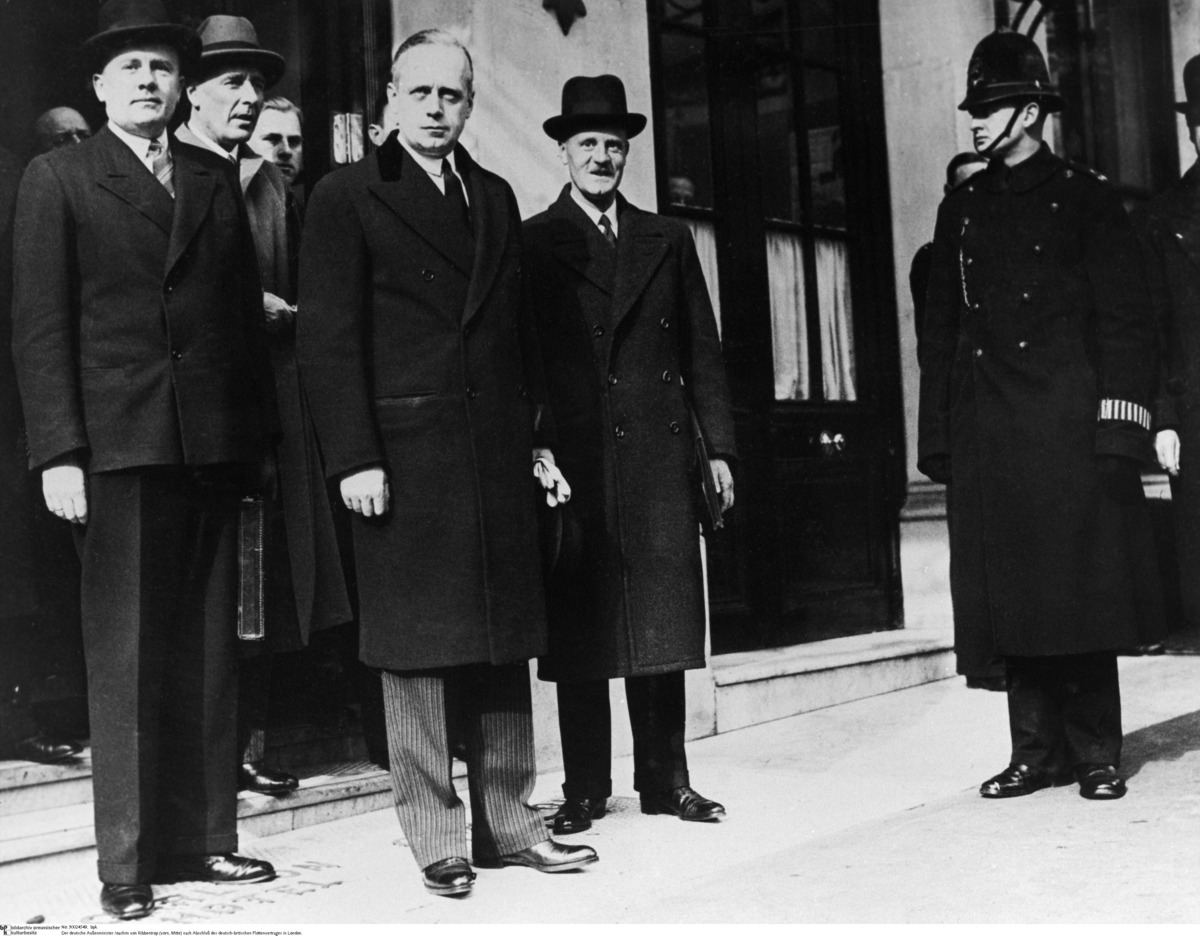Abstract
Hitler's open break with the military regulations of the Versailles Treaty met with intense international criticism. To persuade the British government of his willingness to cooperate, Hitler arranged for the drafting of the German-British Naval Treaty, which limited the size of the German navy to 35% of the British fleet. German submarines were limited to 45% of the Royal British Navy. Joachim von Ribbentrop (front, center), then a special ambassador in London, represented the German side in these negotiations. The agreement was signed in London on June 18, 1935. The British government hoped that the treaty would prevent an arms race like the one leading up to the First World War and at the same time preserve Great Britain’s naval supremacy. But in this case as well, Hitler failed to view the treaty's articles as binding. Before the end of June, he had assured the commander-in-chief of the navy, Admiral Erich Raeder, that Germany’s naval forces would eventually be brought to full strength and used against Great Britain.
